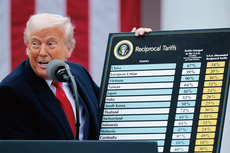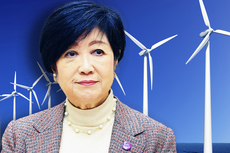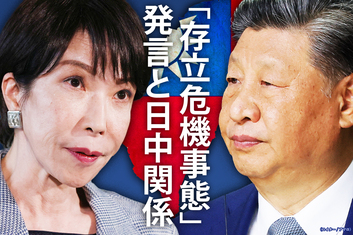Since the end of the Cold War, however, in a less certain world Japan has slowly started to supplement its core US alliance with a series of defence and security agreements with other countries, both regionally and globally.
In recent years, Japan has signed defence agreements with Australia, which has become part of a US/Japan/Australia trilateral arrangement, and countries such as South Korea, India and Vietnam.
Japanese perceptions of regional security, beset by territorial disputes with Russia and South Korea and a nuclear armed North Korea, have been most affected by the rise of China.
Much like Japan in the 1970s and 1980s, China’s military spending is rising broadly in line with the rapid growth of its economy. While much of this is attributable to increasing living standards, China’s military capabilities are being modernised rapidly, with emphasis on submarine, missile and anti-satellite capabilities that can potentially impact on the freedom of navigation and trade of neighbouring countries such as Japan.
China’s high profile development of a new aircraft carrier and a stealth jet aircraft have also shown signs of increased ambition which, if continued in line with current economic development suggests the potential for increased dominance in the future.
The issue of the moment is the dispute over the Senkaku or Diaoyu islands. Japan is confident that its sovereignty, first established in 1895, is legitimate and enduring whilst China insists that the islands were already traditionally part of China.
Whatever the respective merits of each case, and whatever path is taken to achieve resolution, it is hard to escape the perception that China is incrementally testing the limits of legal argument where geographical boundaries are concerned. Even if there is resolution of the sovereignty dispute in the Senkakus, other disputes may yet emerge.
This uncomfortable regional situation leaves Japan increasingly dependent on its alliance with the US. Operational cooperation in the post-tsunami relief efforts in 2011 demonstrated substantial trust and interoperability, although there were a number of areas in which improvements can, and no doubt will, be made. Within the alliance however, are problems which remain unresolved.
Plans to move US Marines from the air station at Futenma are now in their sixteenth year and still remain mired in local opposition. There are no realistic alternative sites elsewhere in Japan and the alliance is clear that, for reasons of regional deterrence, existing numbers of US troops need to remain in place. Forthcoming national elections may possibly help engender a lasting solution.

















